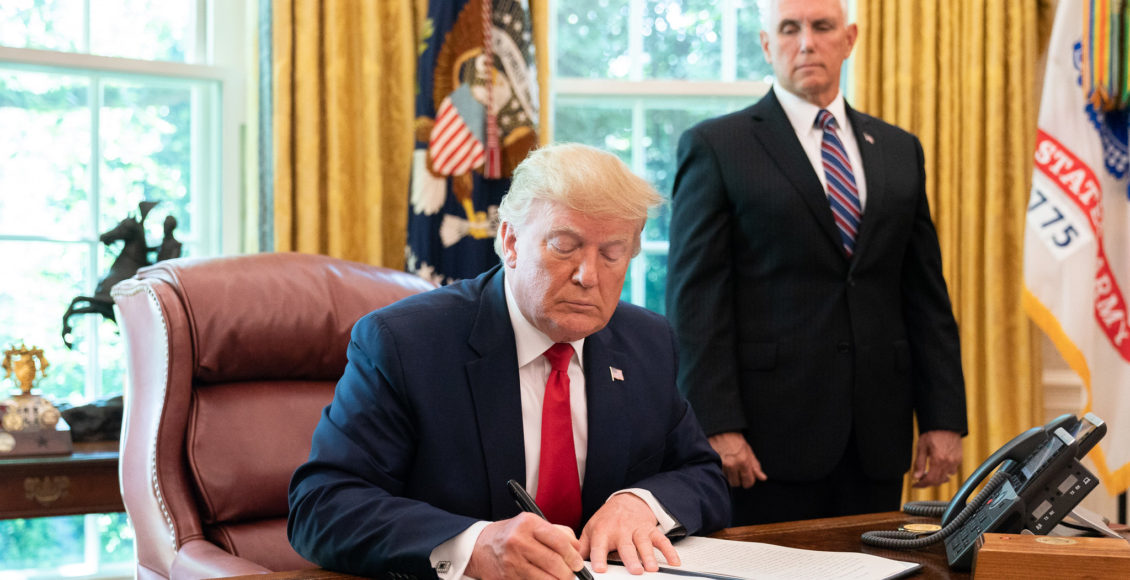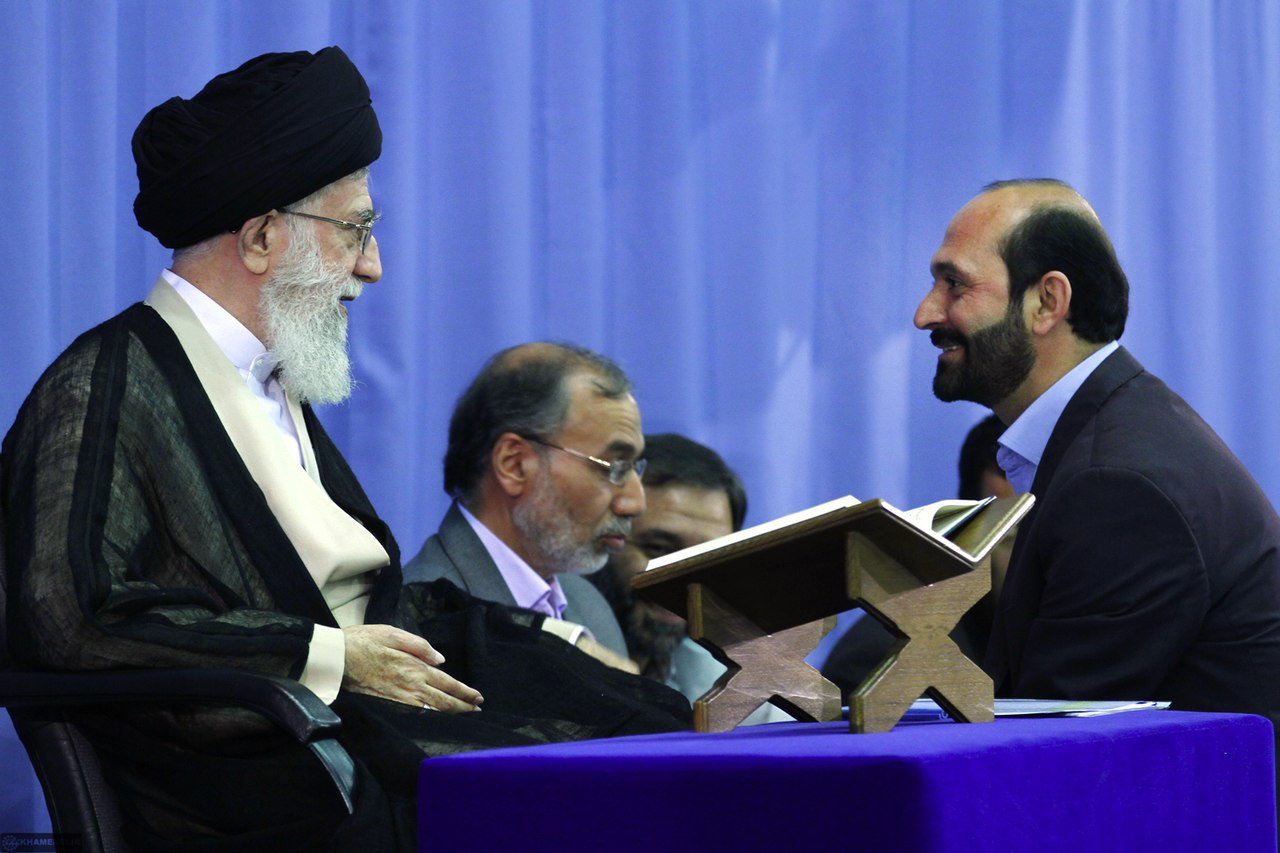Donald Trump and the Arab World War

The election of Donald Trump as President of the United States has aroused a variety of reactions throughout the Middle East. Given the many contradicting statements Mr. Trump made on the campaign trail, it is hard to gauge his preferences with regards to Middle Eastern policy. Given the endemic turmoil that has afflicted the region since the outbreak of the so-called Arab Spring in late 2010, it is quite difficult to make any sound predictions on the consequences of a Trump presidency for the Middle East. However, notwithstanding the allegedly ‘isolationist’ thrust of Mr. Trump’s foreign policy pronouncements, American engagement with a region as strategically vital as the Middle East is not about to end any time soon. A host of hugely consequential problems will face the incoming administration almost from day one.
Of greatest significance will be the stance of the Trump administration towards the Joint Comprehensive Plan of Action (JCP). This is the official name for the agreement between Iran, the United States and other major powers which seeks to ensure that the Iran’s nuclear program will be exclusively peaceful. On the campaign trail, Trump frequently lambasted the Obama administration for entering into the “horrible deal,” hinting that he would at the very least seek to renegotiate its terms, though he has rarely identified the specific aspects of the deal which he finds unsatisfactory. The President-elect’s mooted picks for the State and Defence Departments will not have reassured supporters of the deal. Mitt Romney, a favourite for the State portfolio, has written that the “generational calamity that will result from President Obama’s nuclear deal with Iran will last a very long time indeed,” claiming that the deal still leaves Iran with a path to weaponization. No good, he says, can come from negotiating with the “suicidal, apocalypse-seeking, America-hating, Israel-denying fanatics” of the Islamic Republic. James Mattis, the retired Marine general in the running for Defence Secretary, has declared that “Iran will cheat…,” adding in the same interview that Iran is “not a nation state, but a revolutionary cause intent on mayhem.”
Despite such hawkish pronouncements, there remains some hope that Mr. Trump will refrain from making a move that CIA director John Brennan has said would constitute “the height of folly.” Walid Phares, an advisor to Trump on Middle East affairs, has sought to allay concerns. “Ripping up is maybe too strong of a word,” Phares told BBC radio, “he’s gonna take that agreement, it’s been done before in an international context, and then review it.” Trump himself has hinted that the United States might need to work with Iran as well as Russia in order to reach a solution in Syria.

Should Washington walk away from the deal, however, Iran’s conservative establishment will likely be emboldened to intensify the country’s already extensive intervention in conflicts from Yemen to Iraq. A unilateral abrogation of the deal by Washington would signify to the Iranians a renewed openness to the prospect of military confrontation. The regional proxy wars Iran is fighting against Saudi Arabia and other Sunni powers are already a major source of instability in the Middle East, and, should the ayatollahs feel that the survival of regime is once more at stake, the results could be ominous. This is to say nothing of the incentives Iran would then have to accelerate its search for a nuclear deterrent. Indeed, Saudi Arabia and its fellow Gulf states have been broadly critical of the Obama administration’s perceived lack of interest in their security. They are not enemies of the JCPOA per se, given that the deal at least provides a means by which to prevent Iran from obtaining nuclear weapons.
Besides the question of the Iran deal, President-elect Trump will inherit the Obama administration’s war on the jihadists of the Islamic State (IS). Mosul might not be entirely clear of IS fighters by the time Mr. Trump is inaugurated in January. He will not miss the opportunity to be praised as the leader who turned the tide against the ‘caliphate.’ As Iraqi government troops battle their way into Mosul’s heavily fortified city centre, greater involvement of US special forces could well tilt the balance. More intensive mobilization of American reconnaissance and intelligence capabilities might help assuage concerns regarding the fate of Mosul’s remaining civilians. However, it is hard to envision perfect cooperation between the Iraqis and an American president who has proposed expropriating the country’s oil wealth. What is more, given Trump’s promise to target the families of IS fighters with lethal force, American involvement in the Mosul campaign may begin to exhibit markedly less concern for the civilians holed up in the city. The targeting of civilians is, of course, illegal under US and international law, but a commander who considers refusing such an order must also weigh the possibility of court-martial and a destroyed career. According to several monitoring groups, including Amnesty International, the Pentagon may be vastly underestimating the civilian death toll of its air campaign. A Commander in Chief uninterested in mitigating the already extensive risks to civilian life and property will only play into the jihadists’ hands, bolstering a narrative which portrays the US as an oppressor of ordinary Muslims. Radicals have already sought to use Islamaphobic sentiments aroused by Trump’s election campaign as a propaganda tool.
In Syria, American-backed efforts to liberate IS-held Raqqa have proceeded at a slower pace. Obama administration officials have voiced some concern regarding the overwhelmingly Kurdish makeup of the force assembled for the push on the Arab-majority city, and tensions have escalated between the Kurds and the force’s smaller Arab contingent. A Trump administration will have no such misgivings. “I try to learn from the past,” Trump informs us in his book, The Art of the Deal, “but I plan for the future by focusing exclusively on the present.” This is alarming. Mr. Trump will require a healthy dose of historical perspective if Raqqa, in particular, and Syria generally, are to have even a semblance of peace once the jihadists are evicted.
The Syrian Kurds have been the US’s most reliable partners in the Syrian front against IS. However, some accuse the Kurds of exploiting American air protection to evict Sunni Arab civilians from towns and villages in northern Syria, in the hopes of establishing a homogeneously Kurdish autonomous zone. With the noose tightening around IS on both the Syrian and Iraqi fronts, it is clear that the jihadists will soon be defeated militarily, but if the Trump administration neglects to restrain Kurdish excesses in the aftermath of victory in Raqqa, or disregards the risk to civilian life in Mosul, the peace that follows liberation will not be worthy of the name. The militants will have been routed and dispersed, but Sunni Arab sentiments of dispossession and persecution will continue to simmer. The legitimate grievances that have driven insurgency across the Fertile Crescent for more than a decade will remain. If President-elect Trump decides to plan for the future of the Middle East by focusing exclusively on the present threat of IS terrorism, he will be responsible for the next stage of the region’s descent into chaos. He will not, of course, be wont to admit it.
Two hundred kilometres to the northwest of Raqqa, forces loyal to Syrian President Bashar al-Assad have begun an offensive to dislodge the rebels from their last major urban stronghold in eastern Aleppo. A flotilla of Russian warships has recently arrived off Syria’s eastern Mediterranean coast with the intention of supporting regime operations in Aleppo, which – spearheaded by Hezbollah and other Shi’ite militants from Iran and Iraq – have forced 25,000 civilians to flee the city in the last three days. This is a crucial moment in the Syrian civil war. Should the Syrian regime and its Russian patrons succeed, they will have relegated the rebellion to a largely rural insurgency and laid a significant fait accompli before the incoming Trump administration. As it is, the President-elect has frequently voiced his intention to seek “common ground” with Vladimir Putin over the conflict in Syria. “I’ve had an opposite view of many people regarding Syria,” Trump recently told the Wall Street Journal. He has signalled that his administration will drop US demands that Russia end its support for a Syrian regime that has been responsible for the vast majority of civilian deaths during the war. Trump has made clear his [intention] to end covert support for the “moderate” Syrian rebel organizations fighting the regime. According to Trump, “Syria is fighting ISIS, and you have to get rid of ISIS… I’m not saying Assad is a good man, ‘cause he’s not, but our far greater problem is not Assad, it’s ISIS.”
On this as in other fronts, Trump appears to be prioritizing the short-term concerns regarding Islamist terror over long-term regional stability. While jihadist and fundamentalist groups are indeed the most militarily potent organizations arrayed against the Syrian government, instances of IS-regime engagements are rare. Assad has focused mostly on taking or defending major conurbations and defending the regime’s coastal enclaves. Home to most of Syria’s population, these towns and cities are clustered in the west, far from IS’s sphere of control along the eastern desert approaches to Iraq.
A cessation of American support for rebel groups and the normalization of US relations with the Kremlin-sponsored regime in Damascus might realistically achieve a near-term deescalation of hostilities. Yet this will be a temporary relief to beleaguered Syrians. In all likelihood, the Trump administration will drop efforts to establish a viable alternative to continued rule by the Assad regime, whose massive destruction of civilian life and property will have divested it of legitimacy among a large, mostly Sunni, section of the Syrian population. The Russians may be induced to participate in a joint air campaign against groups deemed to present significant threats to mutual interests, but this will not spare the inhabitants of the region from a future of strife and insecurity. Vast swathes of countryside will remain mired in a Hobbesian nightmare of violence and lawlessness. Syrians will not soon forget the nearly half-million of their friends, family and compatriots who have been sacrificed in the most horrific manner to keep the mafia-like Damascus regime in power. Neither will they forget Russian, and now American complicity, in their suffering. Although currently unlikely, the al-Qaeda-affiliated rebels active in Syria, previously at odds with IS, may deem cooperation with the ‘caliphate’ a prudent decision in the face of a joint US-Russian assault. Whether it manifests itself in the form of a renewed jihadist insurgency or in some other guise, the Syrian rebellion will in all likelihood outlive the Trump presidency.
Trump has repeatedly claimed that he opposed the US invasion of Iraq in 2003, and has called for a lighter American footprint in the Middle East. His inward-looking impulses, along with the predicted thaw in relations with Russia, will alarm traditional US allies in the region. NATO member Turkey has appeared in recent months to be altering its long hostile stance towards the Assad regime, and has itself sought to re-engage Mr. Putin’s government after years of tension over the Syrian conflict. but these Turkish moves may be motivated more by President Erdoğan’s attempts to safely consolidate power than by a genuine change in Turkey’s preferred outcome in Syria. If the nationalists of Mr. Erdoğan’s AK Party are able to achieve the constitutional changes they desire in the near future, we could well see attempts by Turkey to reassert its regional authority in the face of increased interventionism by Russia, long seen by Ankara as a strategic adversary. Israeli security officials are concerned about Russian indifference to the enhanced role Hezbollah has acquired as a proxy force in the Syrian arena. A new confrontation between Israel and the Lebanese militants might not be long in coming.
The featured image is public domain.
